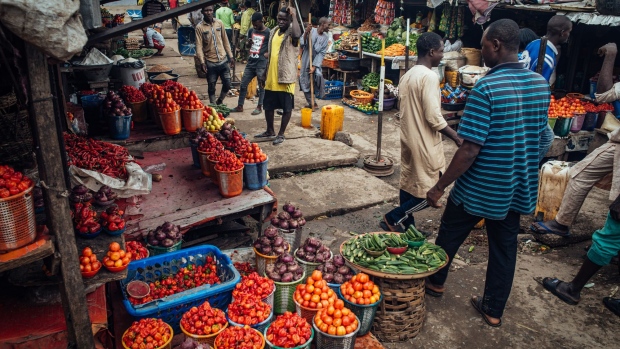Nov 16, 2020
Nigerian Inflation Rate Rises on Surging Food Costs
, Bloomberg News

(Bloomberg) -- Nigerian inflation quickened for a 14th straight month in October on rising food prices caused by border closures, dollar restrictions and banditry attacks that are preventing farmers from producing food.
Consumer prices rose 14.2% from a year earlier, compared with 13.7% in September, Abuja-based National Bureau of Statistics said Tuesday in a report published on its website. The median estimate of five economists surveyed by Bloomberg was 14.1%. Costs rose 1.54% in the month.
Key Insights
- This is the fifth year inflation has exceeded the central bank’s target range of 6% to 9% and will probably continue accelerating due to an end of fuel subsidies, currency weakness, typical price hikes related to the festive season and a recent order by President Muhammadu Buhari that restricts dollar access for food and fertilizer imports. That will drive traders to the parallel market for foreign exchange, where they will pay a lot more.
- Food prices have been a key driver of inflation in Africa’s largest economy. The food index, which accounts for more than half the inflation basket, rose 17.4%, compared with 16.66% in September. Floods, violent farm attacks, and clashes between herders and farmers weigh on supply, though the government’s softening stance on border closures in place since August 2019 may reduce pressures.
- An unexpected cut in the key interest rate by 100 basis points in September will probably mean the central bank will hold the rate at 11.5% next week as it seeks to support a recovery in Africa’s largest economy, even as inflation remains sticky.
©2020 Bloomberg L.P.


